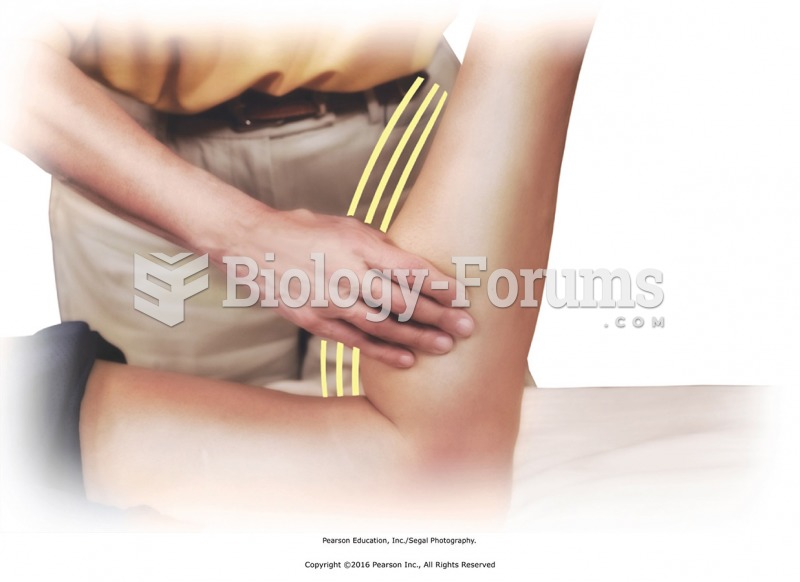|
|
|
The human body produces and destroys 15 million blood cells every second.
A good example of polar molecules can be understood when trying to make a cake. If water and oil are required, they will not mix together. If you put them into a measuring cup, the oil will rise to the top while the water remains on the bottom.
There are over 65,000 known species of protozoa. About 10,000 species are parasitic.
The Romans did not use numerals to indicate fractions but instead used words to indicate parts of a whole.
Signs of depression include feeling sad most of the time for 2 weeks or longer; loss of interest in things normally enjoyed; lack of energy; sleep and appetite disturbances; weight changes; feelings of hopelessness, helplessness, or worthlessness; an inability to make decisions; and thoughts of death and suicide.
 Vertebral compression Fractures of the spine (vertebra) can cause severe ”band-like” pain that radia
Vertebral compression Fractures of the spine (vertebra) can cause severe ”band-like” pain that radia
 Amniocentesis. In this examination procedure, amniotic fluid is aspirated with a syringe that is ins
Amniocentesis. In this examination procedure, amniotic fluid is aspirated with a syringe that is ins





